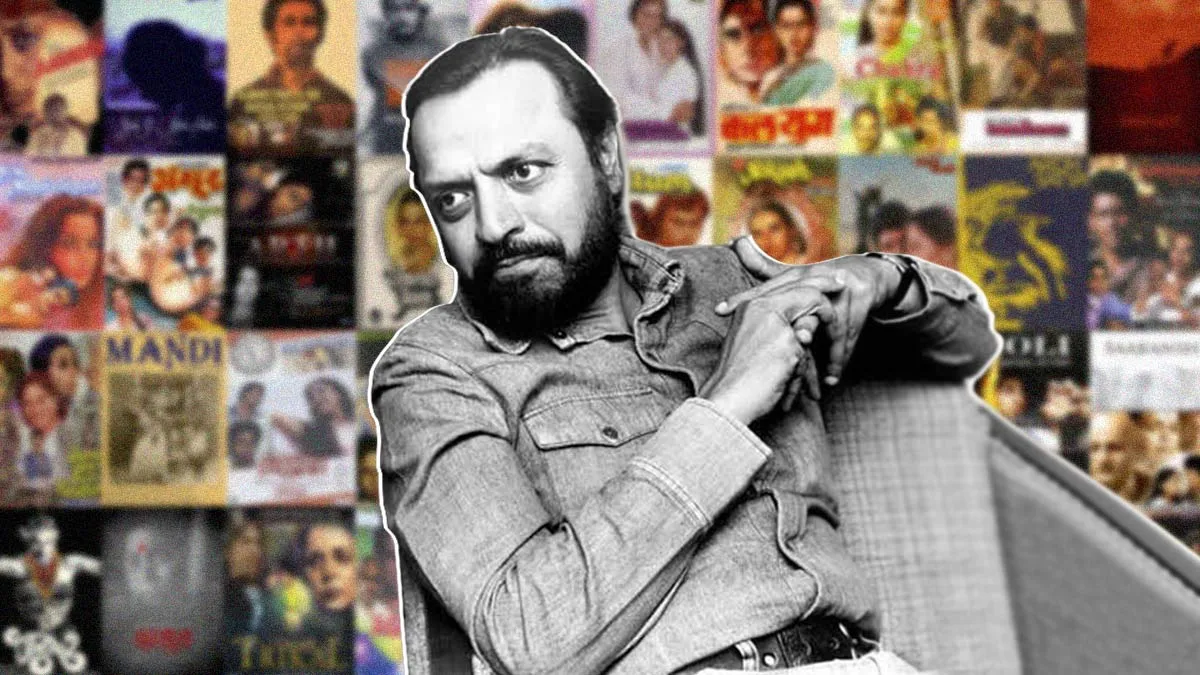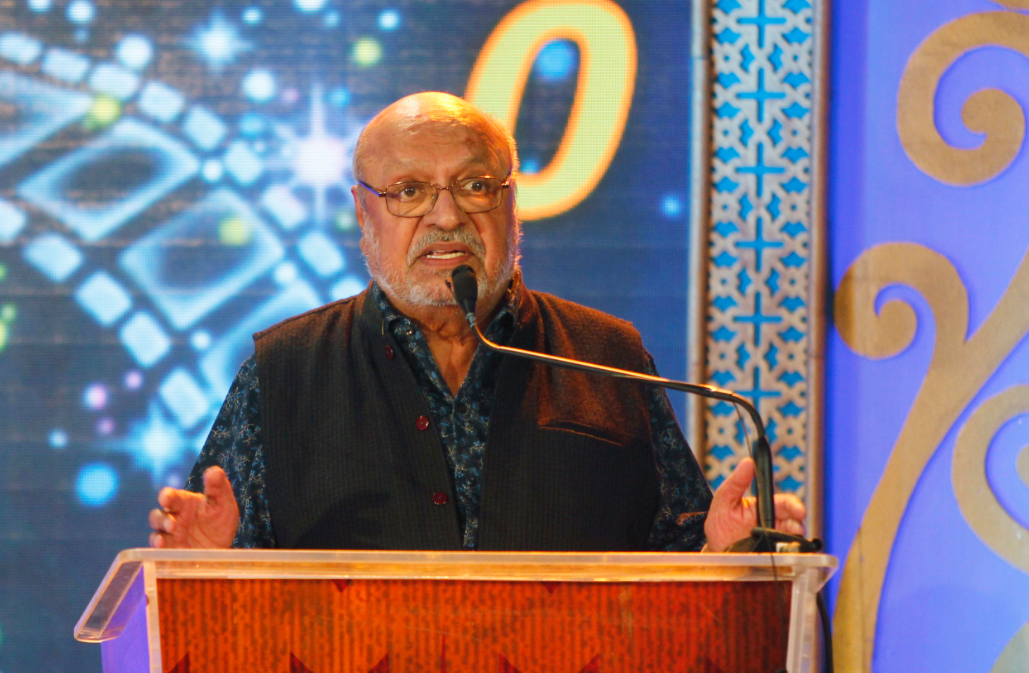
Shyam Benegal, the iconic Indian filmmaker, passed away on December 23, 2024, at 90. Throughout his illustrious career, which spanned more than fifty years, Benegal became a pioneering force in Indian cinema. He was known for his insightful social commentary and his bold, nuanced portrayal of women’s lives. His films consistently pushed boundaries and offered fresh perspectives, challenging societal norms and traditional cinematic conventions.
In the 1970s and 1980s, Benegal emerged as a key figure in the parallel cinema movement, alongside other filmmakers like Mani Kaul, Ketan Mehta, Saeed Mirza, and Govind Nihalani. His work, often in collaboration with talented actresses such as Smita Patil and Shabana Azmi, brought complex stories of women to the forefront of Indian cinema.

Although Benegal never openly identified as a feminist filmmaker, his work reflected his deep concern for women's struggles, agency, and empowerment across all social classes. His films stood in sharp contrast to Laura Mulvey's concept of the 'male gaze,' which suggests women are objectified for male pleasure. Benegal, on the other hand, focused on portraying women as strong, multifaceted characters, central to the narrative, and with their own stories and identities beyond male desire.
Benegal’s directorial debut ‘Ankur’ is a powerful film that takes on casteism and sexual exploitation in rural India. Starring Shabana Azmi as the wife of a Dalit farmer, the film explores the relationship between Azmi’s character and a young zamindar played by Anant Nag. The film presents a scathing critique of the oppressive systems that bind the lives of the marginalised, particularly women. Azmi’s portrayal of a woman caught in the web of caste politics and sexual exploitation remains a defining moment in Indian cinema. Ankur also touches upon the silent abuse of women, as seen in the character of the zamindar’s wife, portrayed by Priya Tendulkar.
In ‘Bhoomika’, Shyam Benegal delves into the life of Usha, played by Smita Patil, based on the autobiography of Marathi actress Hansa Wadkar. The film follows Usha’s tumultuous journey through the film industry, where she grapples with personal and professional struggles.
Bhoomika examines the blurred lines between an actress’s public image and private identity, portraying Usha’s quest for self-understanding amidst exploitation and emotional conflict. Benegal’s sensitive handling of female subjectivity and the complex emotions of his lead character make this film a compelling exploration of a woman’s inner life.
‘Mandi’, one of Benegal’s most daring films, explores the lives of women working in a brothel in Hyderabad. The film focuses on Shabana Azmi’s portrayal of the madam of the brothel, who fights against land-grabbers and local politicians threatening the establishment. ‘Mandi’ uses burlesque and dark comedy to examine the contradictory and often contradictory aspects of prostitution. It reveals how women, despite facing exploitation, form a unique bond of solidarity and resilience. Benegal’s exploration of a brothel’s microcosm of power dynamics, survival, and the struggle for dignity is a masterpiece of social commentary.
Don't Miss: From 'Laapataa Ladies' to 'Parched': Films That Shaped My Ideas Of Feminism
‘Zubeidaa’, starring Karisma Kapoor in the title role, is a tragic tale of a free-spirited woman who seeks to live life on her terms. Based on the real-life story of Zubeidaa, an actress with a tumultuous personal life, the film paints a picture of her unfulfilled dreams and the consequences of her defiance.
The film explores complex relationships, including Zubeidaa’s marriage to a Hindu prince, played by Manoj Vajpayee, and the conflicts it brings. Benegal’s treatment of the character’s emotional turmoil and her ultimate demise in a plane crash is both haunting and poignant. Through ‘Zubeidaa’, Benegal highlights the consequences of living life in defiance of societal norms.
In ‘Manthan’, Shyam Benegal presents the story of rural empowerment through the lens of the milk cooperative movement, led by Verghese Kurien. The film features Smita Patil as Bindu, a strong-willed young woman who becomes instrumental in setting up a dairy cooperative in her village. ‘Manthan’ celebrates women’s power and resilience in rural India. Patil’s portrayal of Bindu, a woman who challenges caste and patriarchal structures to improve her community’s economic standing, is a testament to Benegal’s ability to depict women in positions of leadership and agency.
Shyam Benegal’s contribution to Indian cinema goes beyond filmmaking; he redefined it. His films were powerful social commentaries that challenged the status quo and gave a voice to the voiceless. Benegal's ability to tackle complex issues with authenticity and depth inspired generations of filmmakers to create meaningful, socially conscious stories. He proved that artistic integrity and commercial success could coexist, leaving behind a legacy that continues to shape cinema today. Your lens captured the soul of India, and for that, Indian cinema will forever owe you. Thank you, Shyam Benegal, for your cinema and inspiring us all.
Don't Miss: 5 Films Directed By Shyam Benegal Everyone Needs To Watch
Keep reading Herzindagi for more such stories.
Image Courtesy: IMDb
Our aim is to provide accurate, safe and expert verified information through our articles and social media handles. The remedies, advice and tips mentioned here are for general information only. Please consult your expert before trying any kind of health, beauty, life hacks or astrology related tips. For any feedback or complaint, contact us at [email protected].